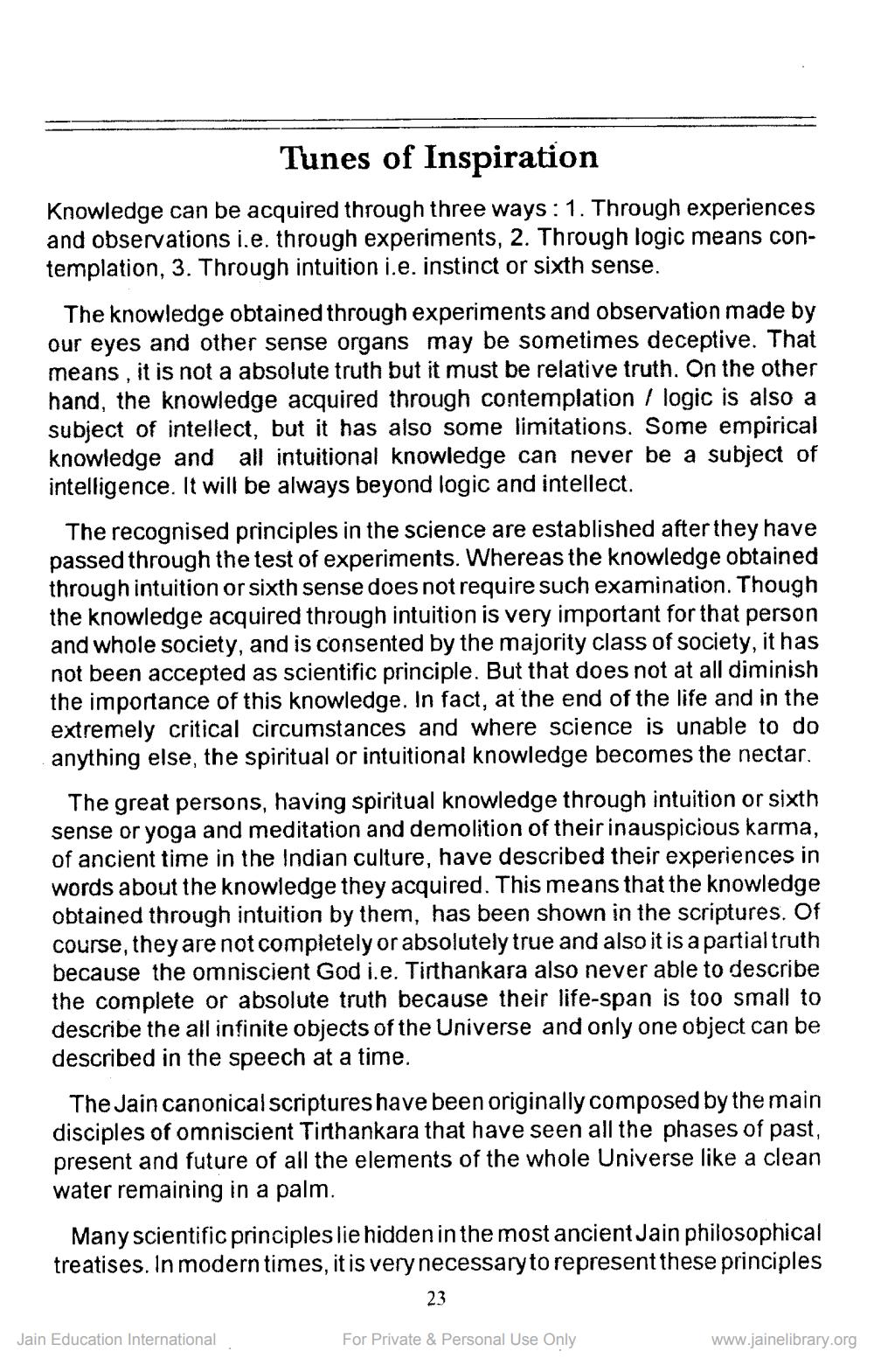________________
Tunes of Inspiration Knowledge can be acquired through three ways: 1. Through experiences and observations i.e. through experiments, 2. Through logic means contemplation, 3. Through intuition i.e. instinct or sixth sense.
The knowledge obtained through experiments and observation made by our eyes and other sense organs may be sometimes deceptive. That means, it is not a absolute truth but it must be relative truth. On the other hand, the knowledge acquired through contemplation / logic is also a subject of intellect, but it has also some limitations. Some empirical knowledge and all intuitional knowledge can never be a subject of intelligence. It will be always beyond logic and intellect.
The recognised principles in the science are established after they have passed through the test of experiments. Whereas the knowledge obtained through intuition or sixth sense does not require such examination. Though the knowledge acquired through intuition is very important for that person and whole society, and is consented by the majority class of society, it has not been accepted as scientific principle. But that does not at all diminish the importance of this knowledge. In fact, at the end of the life and in the extremely critical circumstances and where science is unable to do anything else, the spiritual or intuitional knowledge becomes the nectar.
The great persons, having spiritual knowledge through intuition or sixth sense or yoga and meditation and demolition of their inauspicious karma, of ancient time in the Indian culture, have described their experiences in words about the knowledge they acquired. This means that the knowledge obtained through intuition by them, has been shown in the scriptures. Of course, they are not completely or absolutely true and also it is a partial truth because the omniscient God i.e. Tirthankara also never able to describe the complete or absolute truth because their life-span is too small to describe the all infinite objects of the Universe and only one object can be described in the speech at a time.
The Jain canonical scriptures have been originally composed by the main disciples of omniscient Tirthankara that have seen all the phases of past, present and future of all the elements of the whole Universe like a clean water remaining in a palm.
Many scientific principleslie hidden in the most ancient Jain philosophical treatises. In modern times, it is very necessaryto represent these principles
Jain Education International
For Private & Personal Use Only
www.jainelibrary.org




